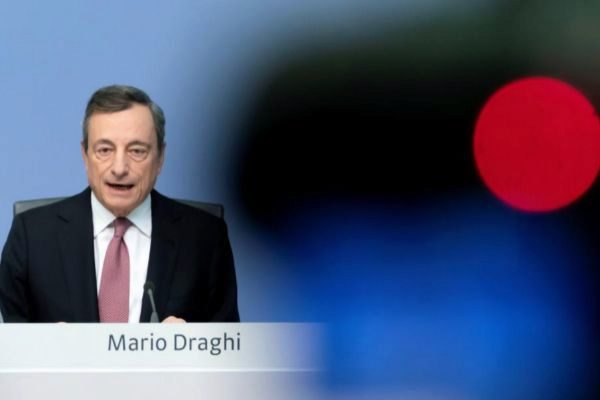The European Central Bank (ECB) yesterday removed its artillery in an attempt to reactivate the economy of the euro zone and move away the ghosts of a new recession. Mario Draghi announced a deeper reduction of the type of deposits that he charges to the bank for keeping his liquidity in the supervisor and, in parallel, the reactivation of an asset purchase program worth 20,000 million euros per month.
What are these measures intended to do? In the first case, prevent banks from leaving their money parked on the ECB balance sheet and being encouraged to grant credit to the different economic agents. On the other hand, the purchase of assets involves an injection of liquidity into the economy that drives spending and reduces the financial cost of the States, since the profitability of their debt in the secondary market falls and ends up moving to new issues. What are the measures going to have? The central objective is to breathe dynamism into the European economy, charging whoever has the money stopped - that is, penalizes savings - and encouraging those who put it into circulation through productive investments. Who wins and who loses with Draghi's last performance? Banking is the most pressured sector since it has to pay more for the rate cut, although one of the measures announced yesterday tries to cushion the cost for financial institutions leaving out the payment for the liquidity necessary to cover your reservations. The measure did not seem to convince investors much, since most of the Spanish banks closed with losses on the stock market. Can banks transfer the cost of deposits to their clients? Yes. In fact, the main entities are already doing so with the treasury accounts of large companies and institutional clients. In some cases it has been decided to transfer the full cost of 0.4% - from now on 0.5% - and in others, a lower rate of around 0.15%. Can the charge for deposits to the small saver be extended now? This is the most disturbing question at the moment in the financial sector. Senior executives confess privately that it is necessary to pass on this cost to improve their profitability and avoid a deterioration of their solvency. But none of them dares to take the step for fear of a leakage of deposits. «We are all looking sideways. Someone has to shoot, "a financier explains to this newspaper. What benefits will Draghi's measures have for savers? While the saver will be the most affected, Draghi's stimuli will have significant benefits for the most indebted individuals and, in particular , for those who have variable rate mortgages linked to Euribor. This index is currently listed at -0.37% and it is foreseeable that with the new measures this magnitude will continue to sink indefinitely. What impact does the measure have on the euro? The increase in the money supply should make the Community currency cheaper . This has a positive effect by making exports more competitive and a negative effect because it makes imports more expensive. The announcement sank yesterday the price of the European currency, although during the afternoon its effect was diluted.According to the criteria of The Trust Project
Know more- European Central Bank
- Mario Draghi
- TV
EconomyThe Bank of Spain calls for a revival of public investment in Europe to ward off the recession
EconomyMore 'doping' from Frankfurt against the economic brake in Europe
European Central Bank The 10 challenges of Christine Lagarde at the ECB

